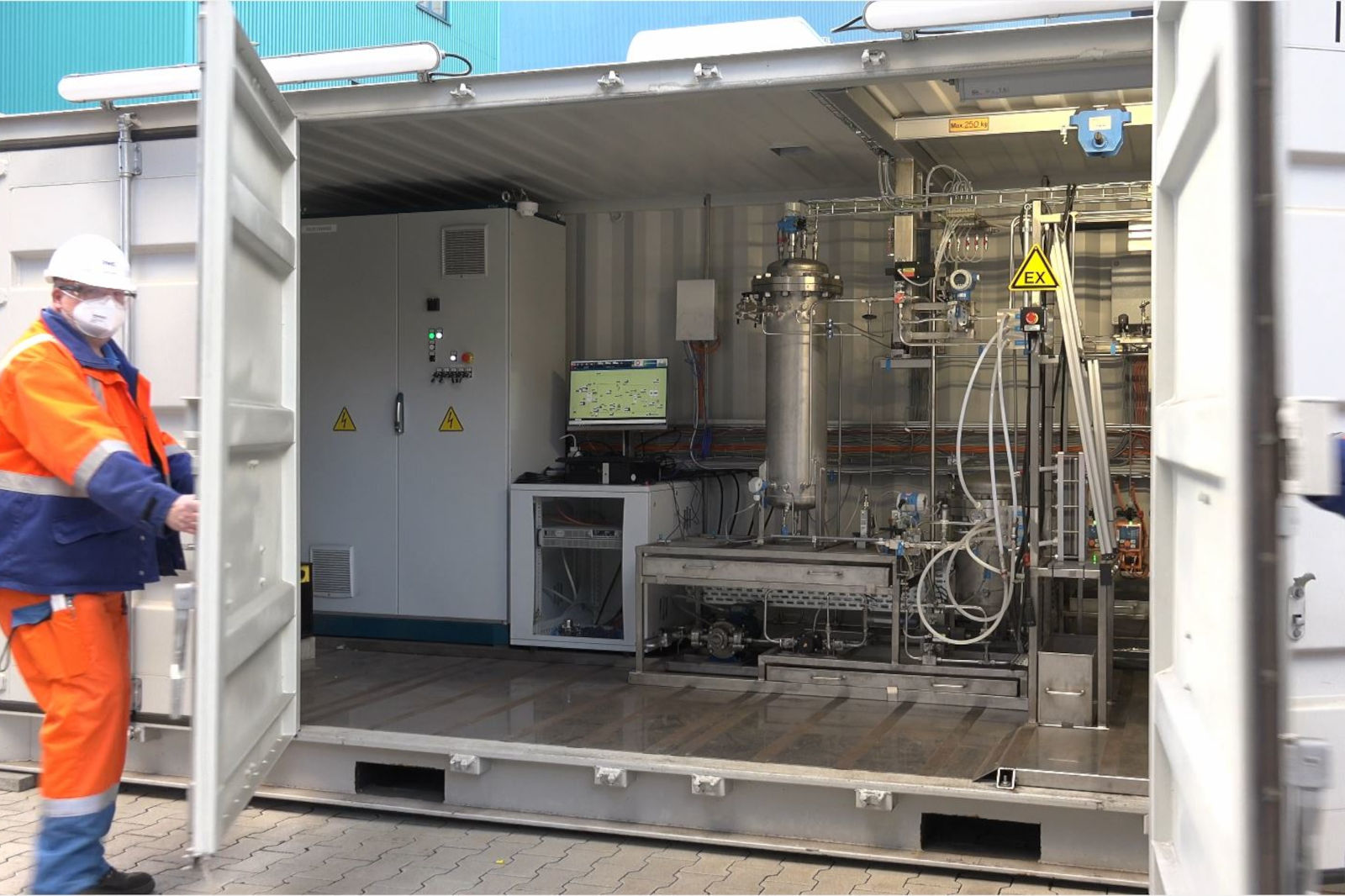Sofia Offshore Wind Farm creating economic value for UK businesses and communities
28.11.2024

“None of us could have imagined the challenges we are all facing now: The huge task of achieving climate-neutrality has been compounded by the structural break in the supply of power and raw materials. That makes it all the more important to pull together, support each other and work as one.” With those words, RWE Executive Board Member Dr Lars Kulik evoked the team spirit that underlies international research. On behalf of the RWE Innovation Centre in Niederaussem, he welcomed 424 participants from 23 countries and four continents to an online workshop on E-fuels and E-chemicals, in other words, sustainable, synthetic products made from water and captured CO2 using renewable electricity.
As part of the EU-funded research projects LOTER.CO2M and OCEAN, two research facilities for the electrochemical production of fuels and chemical raw materials are currently operating at the RWE Innovation Centre next to Niederaussem Power Station. The CO2 is captured from flue gas, with one future source being the combustion of sewage sludge, for example. The required electricity comes from renewables. “We have to replace fossil-based raw materials for the chemical industry and fossil fuels for mobility,” Kulik emphasised together with the 22 partners from industry, research institutes and universities.
The LOTER.CO2M makes the production of alcohols more efficient. Alcohols such as methanol, one of the chemicals most widely manufactured worldwide, are the raw materials for many products needed in everyday use. LOTER.CO2M ended in March 2022, but work will continue with the successor project ECO2Fuel, which has already begun and also benefits from EU sponsorship. Its goal is to develop the world’s largest demonstration plant for the electrochemical conversion of CO2 into alcohols for use as fuels.
The third project, OCEAN, follows a similar approach for the production of high-quality chemical raw materials. It uses a highly innovative electrochemical process to produce formic acid in a single step from CO2 and water, in combination with glycerine, a by-product of biodiesel manufacture.
The two trial plants for the LOTER.CO2M and OCEAN projects have been operated since the beginning of March. The researchers are testing how reliably and flexibly the plants operate.
“There will still be sources of CO2 even after we stop using coal,” comments Kulik. “At the same time, we will continue to use carbon as a chemical component in the manufacture of goods for everyday use. If we combine the utilisation of CO2 and renewable electricity generation, that will give us a closed carbon cycle for climate-neutral chemicals and fuels. In turn, that means increased security of supply, greater stability in the electricity grid and further significant emission reductions.”